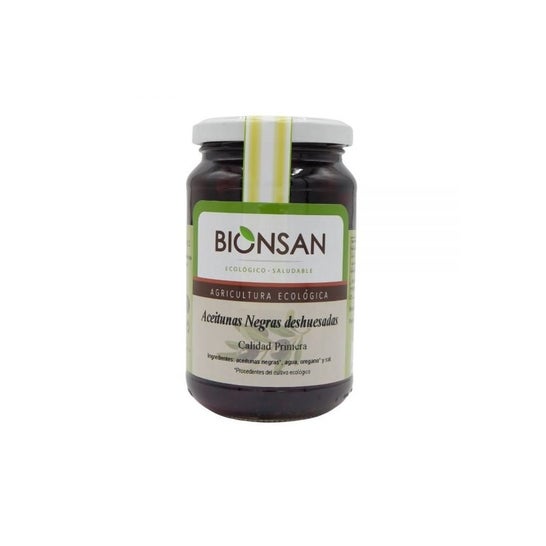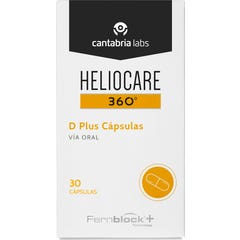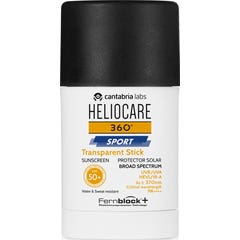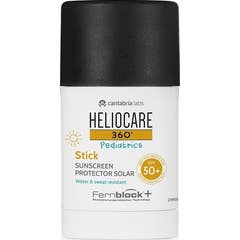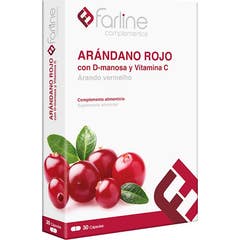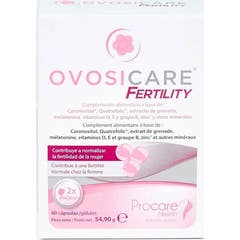Pitted black olives recommended for adding to salads, pizzas, bread dough and for slicing. Black olives contribute to good cardiovascular health due to their fatty acid content. They provide a large amount of natural antioxidants that help to strengthen defences and reduce cellular ageing. The vitamin A they contain is beneficial to help care for eyesight and the immune system. They also contain iron and phosphorus which help to increase concentration and mental capacity.
May contain traces of gluten, soya, nuts, sesame, milk, celery and mustard.
Bionsan Pitted Black Olives Organic 200g
Description
Composition
Black olives*, water, oregano* and sea salt.
*From organic farming".
Price per 100 G
Pharmaceutical Advice
Iron is a functional mineral that contributes to the body's growth and development. It is present in haemoglobin and myoglobin. These proteins transport oxygen from the lungs to the rest of the organism. Iron is also involved in the creation of hormones and connective tissue.
Our organism absorbs this mineral from foods such as seafood, lean meat, eggs, pulses and nuts. To facilitate its absorption, it is advisable to add acidic foods rich in vitamin C, such as orange or lemon juice, to the diet. A lack of iron in the diet can cause iron deficiency (anaemia). In the long term, it can lead to symptoms such as a constant lack of energy, fatigue, intestinal disorders and/or difficulty keeping body temperature under control. Lack of iron can be restored through a varied diet. If this is not enough, it can be mitigated through supervised supplementation. It is essential to follow the advice of a healthcare professional and always avoid taking an iron dietary supplement without checking if you are deficient in this mineral.
The body's iron requirements will change throughout the years. It is particularly important to regulate it during the years of menstruation, as well as in pregnant women and infants. Iron is also actively involved in development and growth and is therefore very important for newborn babies.
Safety and product information
Safety visual aids
At this time we do not have safety images for this product, but we are working on it. We encourage you to check back later for updates. In the meantime, we recommend that you read the safety information that comes with the product before using it. If you have any questions about safety, please do not hesitate to contact us. Also, if you wish, you can also return the product by following our terms and conditions.
Manufacturer details
At the moment we do not have the manufacturer's details, but we are working to add them as soon as possible. We invite you to check back later for updates. If you have any questions, please do not hesitate to contact us, we will be happy to help you.
RELATED SEARCHES ABOUT Food
New in Nutrition
- Nordic Naturals Ultimate Omega Limón 1280mg 180caps
- Nordic Naturals Dha 830mg Omega-3 Fresa 90caps
- Nordic Naturals Omega-3 690mg Limón 120caps
- Nordic Naturals Algae Omega 715mg 60caps
- Nordic Naturals Ultimate Omega Xtra 60caps
- Nordic Naturals Complete Omega Limón 60caps
- Glucerna Control Café 4x220ml
- Glucerna Control Vainilla 4x220ml
- Nua Biological Neuronua 60 Perlas
- DMI Nutrition Inject Fuel Endurance Pink Lemonade 600g

